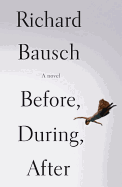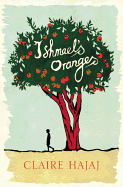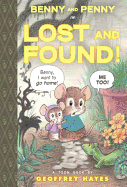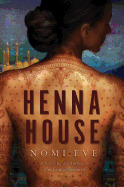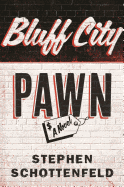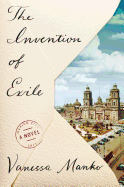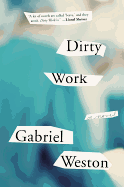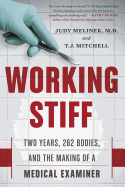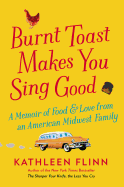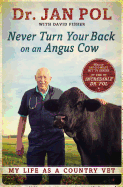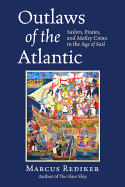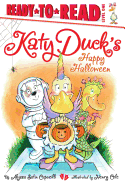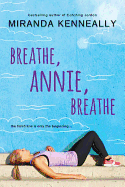Friday, August 15, 2014
The dispute between Amazon and Hachette, which shows once again that independent bookstores are the only booksellers who can be counted on to make all books available to readers, has continued into its fourth month--and gotten more heated.

Amazon countered by creating something called Readers United, and sent a letter to Kindle Direct Publishing authors asking them to pressure Hachette. The letter reiterated the same arguments they've been using, but with a new twist: misquoting George Orwell. Amazon's citing, and misuse, of Orwell's words might lead readers to recall 1984 and think more closely about how the corporation uses its technology. This week, in a letter to the New York Times, Orwell's estate essentially called Amazon's approach Orwellian, saying that the company's selective quoting was "dystopian and shameless... as close as one can get to the Ministry of Truth and its doublespeak."
Many indie booksellers have responded creatively and positively, setting up special displays of Hachette titles, taking orders for upcoming Hachette books--and, in one case, making home deliveries of one book. It's been what Kris Kleindienst, owner of Left Bank Books in St. Louis, Mo., called "a teachable moment" for booksellers. "It's tapped into folks who have never really thought about this."
The major lesson to be learned from this contretemps: shop locally. As author John Scalzi says, "Companies trying to drive the market toward monopoly rarely are on the side of the consumer in the long run." --Marilyn Dahl, editor, Shelf Awareness for Readers
Before, During, After
by Richard Bausch
The Guardian praised PEN/Malamud Award winner Richard Bausch for having "a devastating concern for detail and domestic complexity, the ability to lay bare the convolutions, eccentricities, dangers and beauties of 'ordinary' people." Bausch (Peace; Thanksgiving Night) displays no less in his 12th novel, Before, During, After.
Natasha is a young congressional aide in Washington, D.C., with a checkered romantic history. A chance meeting at a dinner party in spring 2001 leads to a relationship with Michael Faulk, 16 years her senior and an Episcopal priest undergoing a crisis of faith and calling. They fall in love over the course of the summer and set their wedding for fall. On September 11, Michael is in New York with breakfast plans at Windows on the World in the World Trade Center while Natasha is on vacation in Jamaica. In the ensuing communication blackout, Natasha believes Michael among the dead. Distraught, disoriented and intoxicated, she is raped by a fellow vacationer. She is paralyzed by trauma and shame and cannot share her experience with Michael when they are finally reunited. Michael interprets her withdrawal as a consequence of infidelity. Their relationship slips into one of secrets, suspicion and resentment, until it becomes unendurable.
Michael and Natasha are flawed in their own distinct ways, with quotidian human weaknesses, but Bausch never judges them; he concentrates on their pain and how they might find their way back to one another. His handling of 9/11 as a backdrop is sensitive and deft in this tender novel about the personal consequences of a cataclysmic national event. --Jeanette Zwart, freelance writer and reviewer
Discover: One of our finest contemporary writers delivers a gorgeous, emotionally complex novel about the personal consequences of a national tragedy.
Ishmael's Oranges
by Claire Hajaj
Spanning nearly 40 years, Claire Hajaj's debut novel takes readers from the streets of Jaffa in Israel to England and back to Jaffa. Salim Al-Ishmaeli, a young Arab boy, witnesses firsthand the beginnings of the Palestinian-Israeli war as Jewish people begin to flood his neighborhood at the end of World War II. Due to the increasing violence, his family is forced to flee their beautiful home and orange grove, a place that haunts Salim throughout the book. In England, Salim meets Jude, a Jewish girl who struggles to accept her heritage. Despite the obvious problems inherent in their union, they fall in love. Their romance is sweet, particularly when juxtaposed against the increasing tension and anger seen in the streets of Salim's homeland.
When the couple and their two children move to Kuwait for Salim's new job, the underlying friction Salim and Jude have occasionally felt from their cultural differences increases, threatening to catch fire. It coincides with the increased violence in the world around them as war continues to rage on all sides. The couple must make difficult and dangerous choices based on their parental instincts and the pull of their respective heritages. Lyrical and evocative, Hajaj has skillfully captured the heat, dust and sounds of the Middle East and folded them into a rich amalgam of cultures and religious beliefs. Her story lingers long after the cover is closed, not with the question of whether the Jews or the Arabs threw the first stone, but which group will be the first to stop throwing them. --Lee E. Cart, freelance writer and book reviewer
Discover: A bittersweet love story between an Arab boy and a Jewish girl set against the backdrop of the Middle East.
Henna House
by Nomi Eve
In Henna House, Nomi Eve (The Family Orchard) tells the story of Adela Damari, a young girl eventually betrayed by the two people she loves most in the world. As the daughter of a sickly father and an emotionally distant mother, her difficult life begins nearly 100 years ago in Yemen, where she's a member of the Jewish minority in a conservative Muslim nation. Readers follow Adela from age five, when she had little awareness of the social, political and religious forces around her, to her young adulthood, when she plainly understands the influence and power those outside her community have over her life.
Eight-year-old Adela doesn't feel anyone loves and understands her until she meets her cousins Asaf and Hani. Adela is betrothed to Asaf and finally gains the protection she lacks in her conservative society as an unattached young girl. Greater still is the influence Hani's friendship has on Adela's sense of self worth. Hani and her mother, a henna artist of great renown, somehow exist outside the constraints of societal expectations. Covered in beautiful temporary art, their skin is a tapestry of stories. But Hani has a secret, and soon Adela becomes the means and target of a betrayal that tears apart the close-knit community.
Eve writes with a familiarity of character and place. She engages this difficult history with respect, revealing more of the world as Adela's understanding grows. The resulting tension between what readers know and what Adela perceives is a testament to Eve's narrative prowess. --Justus Joseph, bookseller at Elliott Bay Book Company
Discover: An exceptional story of women and friendship that roots readers firmly in a world imbued with ethnic and societal conflicts.
Bluff City Pawn
by Stephen Schottenfeld
Before Kickstarter, Bitcoin and PayPal, the disenfranchised had their own alternative bank: the pawnshop. A decent guitar, wedding ring or rifle could collateralize instant cash--no questions asked. In his first novel, Pushcart nominee Stephen Schottenfeld reveals the down-and-dirty business as practiced by Huddy Marr, proprietor of Bluff City Pawn in Memphis, Tenn. Huddy's shop is on seedy Lamar Avenue; with the sketchy liquor store next to him closing and a cash-for-blood bank opening on his other side, it's getting seedier. He wants to move to a bigger and better location ("Pawnshop[s] should be close to bad. Right on the edge of bad. Just a little ahead of bad."), but his older brother owns Bluff City's building and won't let him out of the lease or front the cash for the move. Huddy needs a big score, and he gets one when a longtime customer--a wealthy gun-collector--dies and the widow sells him the whole primo collection.
Bluff City Pawn is Huddy's story, but it's also the story of his two brothers: Joe, who bootstrapped a nice living building high-end suburban houses before the Great Recession, and younger Harlan, who has lived the scattered life of a petty thief and drifter. Schottenfeld's enthralling novel is stuffed with details of the pawn business, a business Huddy feels gives customers who need fast cash an alternative to robbery. But more than that, it is a contemporary story of family, ambition and economic inequality--where a pawnshop is maybe not such a bad alternative to a bank. --Bruce Jacobs, founding partner, Watermark Books & Cafe, Wichita, Kansas.
Discover: An absorbing first novel about the pawn business and three brothers confronting the hard economic facts of life.
The Invention of Exile
by Vanessa Manko
Austin Voronkov is a man without a country--born in Russia just before the turn of the 20th century, Austin came to the United States in search of a better life. He made ammunition, rising through the ranks to become a factory inspector and eventually an engineer. In the evenings, he stayed up late, reading books about science and drafting inventions. He soon fell in love; he and Julia took their vows in secret, married in the Russian tradition and in their hearts, if not according to U.S. law.
As news of the Bolshevik Revolution began to reach the U.S., Russians found themselves the target of abuse and suspicion. Austin lacked the English words to protest the government's suspicion of his revolutionary associations, and was deported back to what was now the U.S.S.R. Julia, his loyal wife, followed him, and over the next decade they bounced from Russia to the Ukraine, from Paris to Mexico. They had three children, all born nationless.
After vainly petitioning for permission to return to the U.S., Julia and the children were advised to return without Austin. With Julia advocating from the inside, the bureaucratic wheels were expected to move more quickly. Those weeks stretched into months, then a year, then another, then another.
Vanessa Manko's debut is an anti-adventure novel, a stark portrayal of a man who "wore down his mind" with endless hoping. The Invention of Exile is a portrait of what happens when hoping overtakes the reality of what is hoped for, and when being an exile becomes more important than the place that you once called home. -- Emma Page, bookseller at Island Books in Mercer Island, Wash.
Discover: A deceptively simple story about one man's struggle to defy his own inauspicious stars.
Dirty Work
by Gabriel Weston
Abortion can change a person. But Gabriel Weston, a British surgeon-turned-writer, is concerned not with the patient undergoing the procedure but the physician performing it--and performing dozens more each week. Nancy Mullion is the doctor at hand, a gynecological surgeon facing a hospital tribunal after botching a routine termination. Exiled from her London operating theater, Nancy can't hide from family or introspection, and realizes she can't pinpoint quite why or when she selected her particular profession.
Despite its title, Dirty Work doesn't truck much in the messy battlefield of the abortion debate. It only sideswipes the politics, the protestors and even the reasons that lead patients to Nancy's table. Weston instead creates a character study as self-contained as an operating room. Her 2009 memoir, Direct Red, won the PEN/Ackerley Prize for Autobiography, and in her fiction the ENT doctor still displays a keen eye for the absurdities of hospital life: the hallway flower sign that actually signifies the colostomy room; how still-bleeding patients will apply lipstick when a handsome physician makes rounds.
For all its calm introspection, Dirty Work is not too tidy. Memories, like patients, "bleed out" in blunt, swift passages, and Nancy's work is described in frank anatomical detail. Weston is at her best when she rejects the black-or-white dichotomy of the abortion debate and ruminates instead on its intersections: where a girl's need for contraception meets a girl's sense of self, and where the choice of vocation meets a woman's right to choose. --Allison Williams, senior editor, Seattle Met
Discover: A thoughtful exploration of how performing a somewhat controversial procedure has shaped a London doctor.
Biography & Memoir
Working Stiff: Two Years, 262 Bodies, and the Making of a Medical Examiner
by Judy Melinek and T.J. Mitchell
Judy Melinek set out to be a surgeon, completing medical school and starting her residency before realizing it was not the career for her. In the summer of 2001, she changed tack and opted for a career in forensic pathology--what many might recognize from television crime series as a medical examiner. Working Stiff is an account of Melinek's years in training, complete with gory details, heartfelt emotions and plenty of ripped-from-the-headlines case studies.
Melinek, writing with T.J. Mitchell, packs every chapter with a careful balance of scientific fact and personal anecdote, covering topics such as what happens to a body's internal organs in a high-speed car crash with a static object (it's not pretty) and the difficulties of losing a loved one to suicide (Melinek's father killed himself). This mixture of nonfiction and narrative makes for compelling, informative reading as Melinek works through cases of homicide, accidental death, medical error and suicide--and becomes even more powerful as the authors recount the harrowing weeks and months following the 9/11 World Trade Center attacks, which brought more bodies and death to Melinek's door than ever before.
Though the subject of Working Stiff can be overwhelming and gory, Melinek and Mitchell carefully avoid reveling in the horrors of a medical examiner's work. Instead, they highlight individual case studies as a way to illustrate nuances of the job that might not come through on Law & Order: the humanity of the subjects, the inconclusive results of an autopsy, the lasting impact that working with death can have on an individual's life. --Kerry McHugh, blogger at Entomology of a Bookworm
Discover: A scientific and emotional account of one woman's years of training to become a medical examiner.
Burnt Toast Makes You Sing Good: A Memoir of Food and Love from an American Midwest Family
by Kathleen Flinn
The youngest of five children, Kathleen Flinn grew up in a world of weekend hunting trips, summer fishing vacations and cinnamon rolls for birthday breakfasts. Although she later found her way to Le Cordon Bleu in Paris and a career as a food writer, the connection between her Midwestern heritage and her chosen career wasn't always apparent. But when Flinn began researching her family's history, she was surprised to discover "just how honestly I'd come to my love of the kitchen." Flinn (The Sharper Your Knife, The Less You Cry) tells her family's story through food, from her great-grandmother Anna's hearty Swedish recipes to her uncle Clarence's cornflake-crusted fried chicken.
Flinn notes in her introduction that her family's story is "both unremarkable and utterly fascinating." Her ancestors, immigrant and otherwise, were plain, hardworking people: cooks and farmers, laborers and fishermen. A hearty meal often took the place of an expensive gift or eloquent words. Flinn and her siblings never received extravagant presents, but always got to "order" their meal of choice for breakfast, lunch and dinner on their birthday. Flinn's grandma Inez once summed up her food philosophy as she handed her young granddaughter a piled-high plate: "I don't have to tell you I love you. I made you pancakes."
Readers may recognize their own family stories in Flinn's homespun, heartwarming scenes. Neither the recipes nor the prose are exotic or fancy, but their warmth and nourishment may inspire readers to trace their own heritage through food--or just make a batch of Flinn's cinnamon rolls. --Katie Noah Gibson, blogger at Cakes, Tea and Dreams
Discover: Kathleen Flinn's third food memoir traces her Midwestern family's journey through heartwarming stories and simple, comforting recipes.
Never Turn Your Back on an Angus Cow: My Life as a Country Vet
by Dr. Jan Pol and David Fisher
Fans of Nat Geo Wild's reality show The Incredible Dr. Pol will immediately recognize the septuagenarian vet's droll wit and matter-of-fact approach in Never Turn Your Back on an Angus Cow. In this memoir, Pol traces his life from his childhood on a 40-acre dairy farm in the Nazi-occupied Netherlands during World War II to his wildly popular reality show that follows his daily adventures as a country vet in rural Michigan.
Part of Pol's appeal is that he is a "hands-on... old-style vet." While he clearly loves animals, Pol is pragmatic and his memoir is filled with stories that do not have happy endings. He understands that a farmer's relationship to his or her animals is economic, as opposed to a relationship with a pet, which is based purely on love. He also includes a tragic story about a pit bull whose attempt to comfort a child was misinterpreted and resulted in the dog's death.
Many of Pol's stories are not for the faint of heart, but his quirky sense of humor is always entertaining. For example, when discussing animals' ability to harm humans--especially when in pain--he observed: "We also had to teach some of the crew members how to be safe around animals. A lot of them grew up with Disney animals, and I don't think any character ever got stomped or had an eye poked in a Disney cartoon."
Grittier than James Herriot, this no-nonsense vet fills his memoir with his distinct, offbeat perspective on life. --Kristen Galles from Book Club Classics
Discover: How the Incredible Dr. Pol became the accidental star of his own reality show.
History
Outlaws of the Atlantic: Sailors, Pirates, and Motley Crews in the Age of Sail
by Marcus Rediker
In Outlaws of the Atlantic, maritime historian Marcus Rediker (The Amistad Rebellion; The Slave Ship) explores how common sailors and slaves shaped social, political and economic trends in and around the Atlantic during the 17th through 19th centuries. His essays are a nautical "history from below," deliberately overlooking the types of upper-class admirals and merchants so often chronicled in other historical works.
Rediker begins with the origin and purpose of the "sailor's yarn," how this brand of adventure storytelling reinforced the social order aboard ships and excited the popular imagination, inspiring new waves of early modern fiction. The next two essays are personal accounts: one of an ordinary sailor's extreme hardships, the other of an English rebel's extraordinary journey from Caribbean plantation captive to seafaring fugitive. These experiences help illustrate the appeal of piracy, the subject of Rediker's most fascinating essay. Pirates of the 18th-century Atlantic were far more sociologically complex than their modern depictions suggest; they were in many ways opposites of the British Royal Navy: democratic, socialist and just in their applications of brutality. Rediker then shifts to other types of rebels, like the port-city mobs involved in the American Revolution and slave ship revolts (including the Amistad).
Outlaws of the Atlantic is a densely academic work, probably not suitable for light seaside summer reading (despite its subject matter). Its depth will prove a delight for history buffs, especially lovers of maritime history and of history focused on society's lower classes. --Tobias Mutter, freelance reviewer
Discover: A colorful, intensely academic maritime history focused on the lower classes.
Children's & Young Adult
Benny and Penny in Lost and Found!
by Geoffrey Hayes
The mouse siblings return for another stellar beginning reader adventure. When little sister Penny helps Benny search for his missing pirate hat, they both get lost and eventually find their way home.
"Mommy says I have to stay outside until I'm in a good mood," Benny tells Penny, visibly upset at the loss of his pirate hat. Penny responds helpfully, "Mommy says, 'When you lose something... think of the last place you had it,' " which only makes Benny more upset. "Who cares what she says," he replies. When Benny asks Penny to help him find his hat, her expression telegraphs her delight. But after several seemingly dangerous close calls, Penny has a mini-breakdown ("I'm tired," says she, "I miss Mommy"). This brings out the responsible side of big brother Benny, who leads them home. "Mommy says, 'If you get lost, always go back the way you came,' " Penny says helpfully, and this time, Benny is able to heed his mother's advice.
Geoffrey Hayes (Benny and Penny in Just Pretend) strikes the right balance between comics-style panels and words that novice readers can figure out by sounding them out or by using visual clues he provides. He also taps into the emotional life of young children through Benny and Penny's interactions, getting the dynamics down with precision and authenticity. Although we never see their mother, readers feel her guiding presence and wisdom (she helps locate Benny's pirate hat). Here's hoping for more from this loving mouse family. --Jennifer M. Brown, children's editor, Shelf Awareness
Discover: In this latest adventure starring the charming mouse siblings Penny and Benny, they get lost trying to find Benny's pirate hat.
Katy Duck's Happy Halloween
by Alyssa Satin Capucilli, illus. by Henry Cole
The team behind Katy Duck Meets the Baby-Sitter tackles a case of costume envy with humor and insight when the feathered heroine heads out to trick-or-treat with friends.
"Tra-la-la. Quack! Quack!" says Katy Duck as her parents peer through the doorway. "I can get ready for Halloween all by myself." In her costume box, she finds all the ingredients she needs to transform herself into a dancing unicorn. "No one will have a costume like this," she says. Henry Cole portrays Katy's celebratory mood as she gallops and twirls in her purple wings and ballet slippers, blue tutu and multicolored horn, attached by an elastic band. Her canine friend Ralph arrives in a spacesuit, and the two set out to collect candy. But wait: "There was Alice Duck. Alice wore the most wonderful costume Katy had ever seen." In her mermaid costume with matching crown and slippers, "Alice shimmered. Alice glimmered." Poor Katy Duck: "Tra-la-la. Boohoo!" says she. "Suddenly she wanted a costume that shimmered and glimmered, too." A compliment from Alice Duck is all it takes for Katy Duck to improve her mood: "Together, they shimmered and glimmered. Together, they galloped and twirled."
Capucilli and Cole's gentle lesson shows that a little kindness goes a long way toward reducing jealousy and building camaraderie. Katy Duck's industriousness and creativity contribute to a costume that Alice Duck aspires to assemble, another subtle message about being true to oneself. Tra-la-la. Here's to more beginning readers starring the inimitable Katy Duck. --Jennifer M. Brown, children's editor, Shelf Awareness
Discover: A trick-or-treat near-mishap and how a feathered heroine overcomes a challenge to her self-esteem.
Breathe, Annie, Breathe!
by Miranda Kenneally
In this moving novel from the author of Things I Can't Forget, Annie Winters loses her boyfriend, Kyle, before he can complete Nashville's Music City Marathon. She takes up the challenge herself, as a way to keep Kyle's memory alive, and also discovers a reason to keep going.
Miranda Kenneally smoothly integrates an 18-year-old's feeling of grief and guilt into a plot that will inspire readers who've ever attempted to stay afloat while drowning in feelings of loss. As Annie confronts her sense of guilt about wanting to pursue college and achieve the things that she and her single mother have planned, she also develops an interest in her running coach's brother, Jeremiah. But how can she have loved Kyle and also feel attracted to Jeremiah? And given Jeremiah's obsession with extreme sports, how can Annie get involved with someone so willingly reckless? In evaluating all that's happened since her three-year relationship with Kyle began, Annie must also take responsibility for the friendships and family relationships she's neglected. Her ability to take action with her training also allows her to take constructive steps toward repairing other areas of her life. As a bonus, the author lays out a training schedule that could serve as a model for anyone who's entertained dreams of running a marathon.
Through Annie's slow-building trust in Jeremiah, she comes to realize "[I]f you don't take risks, you can't truly feel." Kenneally creates an inspiring character who grows as strong emotionally as she does physically. --Jennifer M. Brown, children's editor, Shelf Awareness
Discover: A young woman trains to complete the marathon that her boyfriend never got to finish, and grows stronger in more ways than one.
| Advertisement Meet belle bear! |


